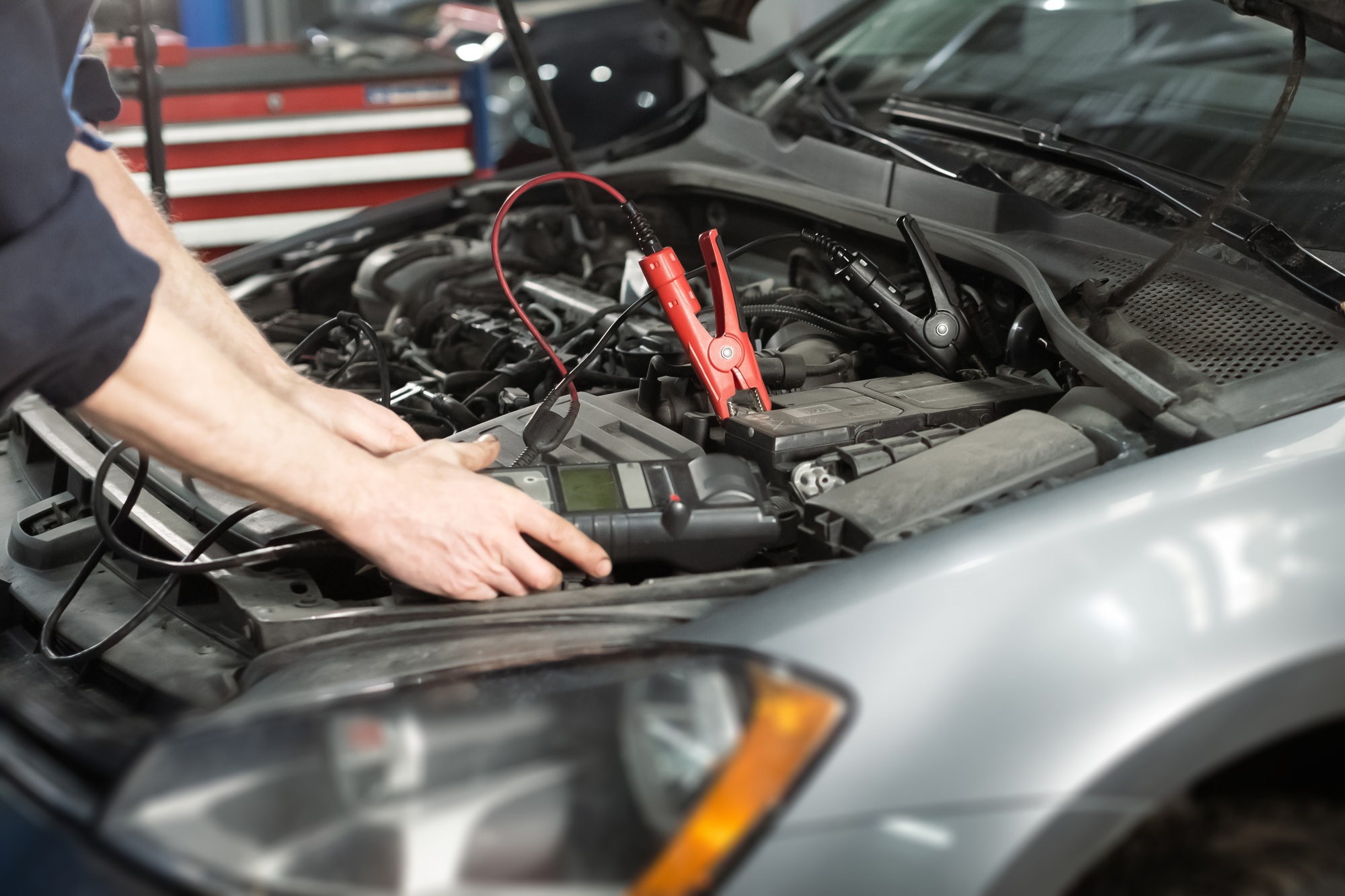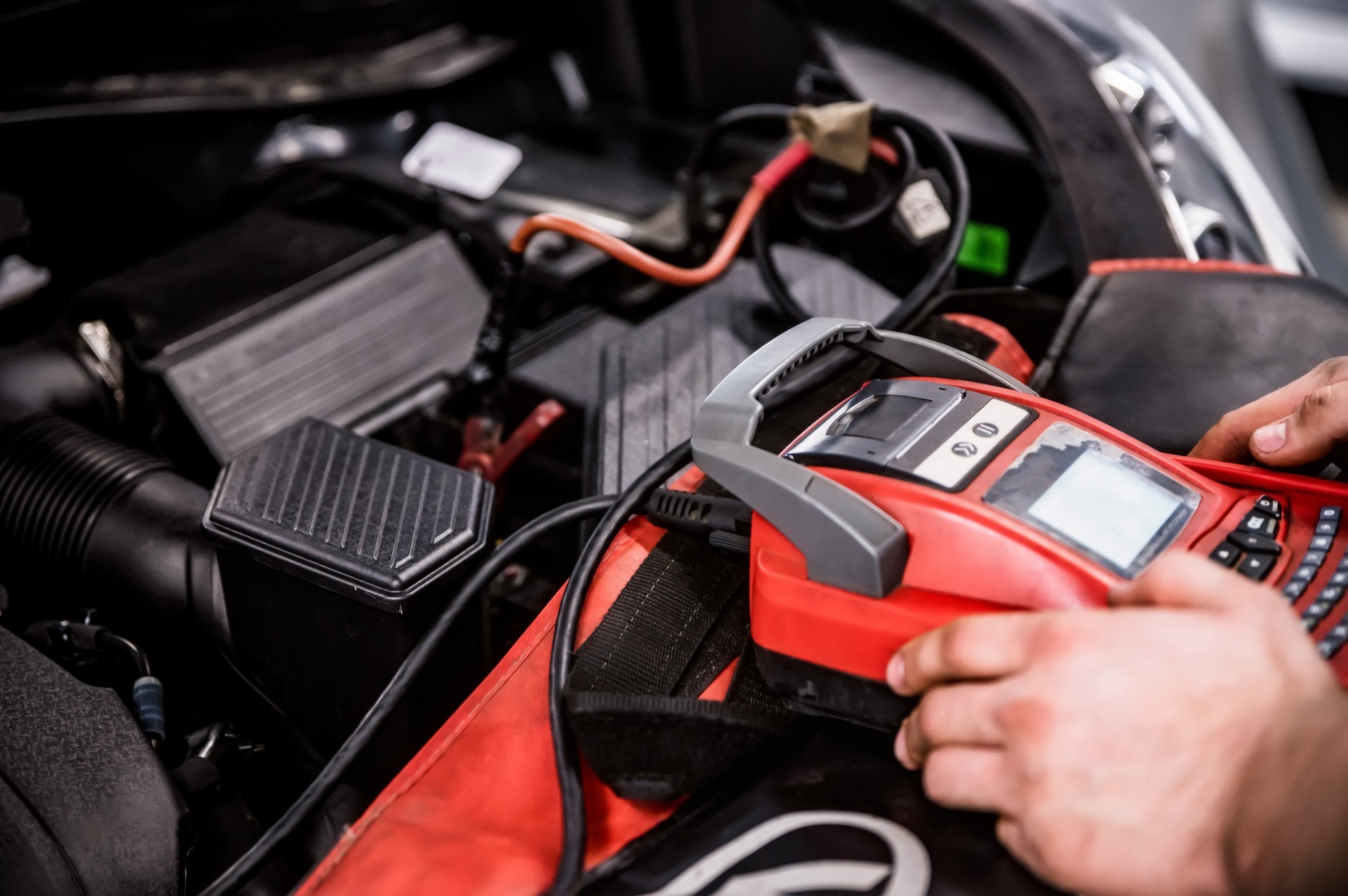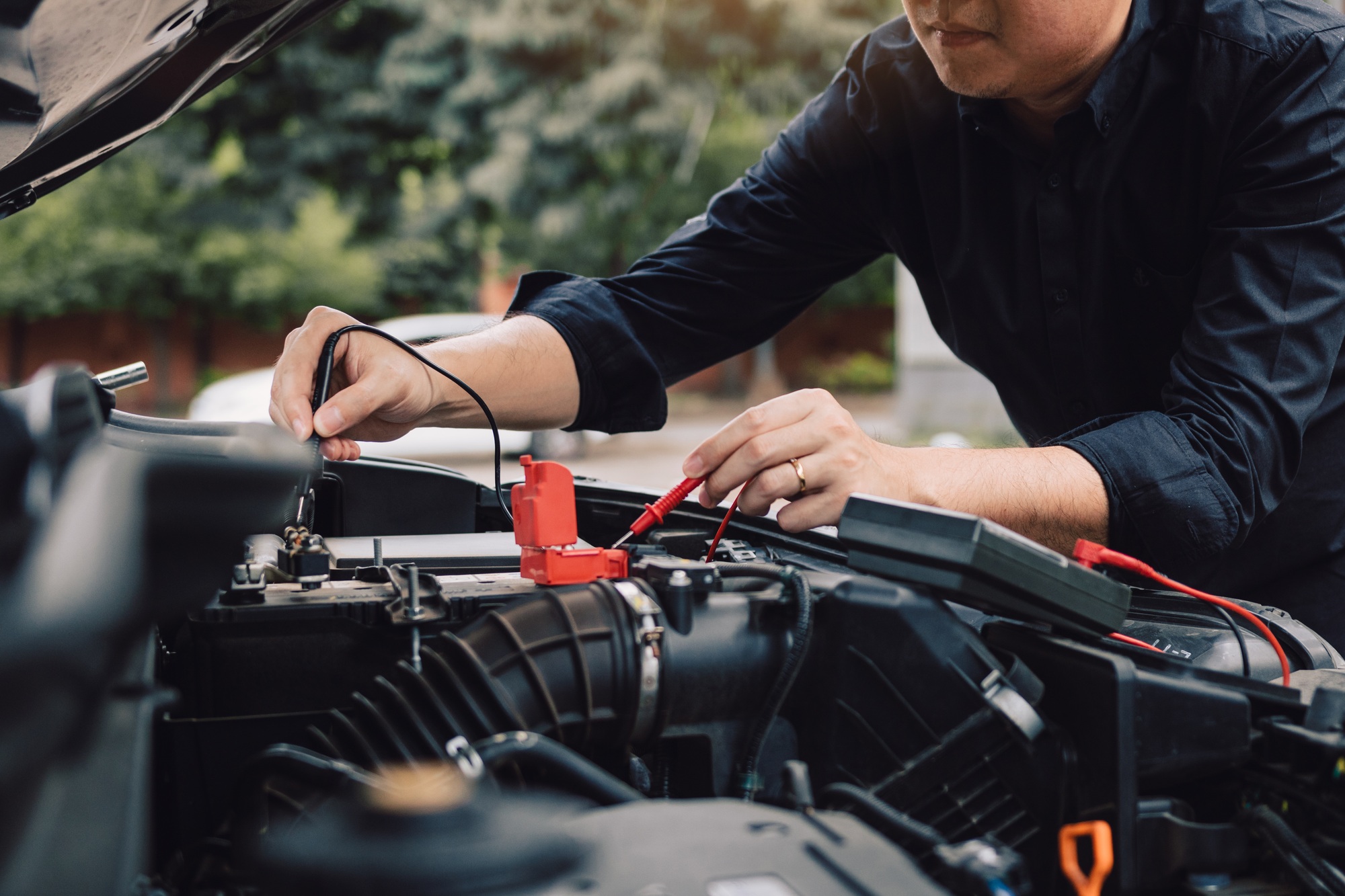Every vehicle eventually needs a new battery. But what happens to the old one? Many people overlook the environmental consequences of discarding a car battery irresponsibly. These batteries contain hazardous materials such as lead and sulfuric acid—both of which pose serious risks to soil, water, and public health. The careless disposal of these batteries has led to increasing ecological damage, particularly in landfills and urban waste zones. That’s why it’s essential to understand the eco-friendly ways to dispose of an old car battery.
Proper battery disposal is not only a responsibility but also an opportunity to contribute to a sustainable future. More importantly, it helps avoid fines, reduces pollution, and enables battery recycling, which saves raw materials and energy. Forward-thinking initiatives, like those led by local disposal partners, emphasize environmentally safe practices. Organizations like Crossroads Helpline have become leaders in making eco-conscious battery disposal accessible and efficient. Try 24/7 roadside assistance.
This article explores responsible and eco-friendly methods of getting rid of your old car battery while protecting our planet. Let’s explore why this matters and how you can do it right.
Why Irresponsible Battery Disposal is Dangerous

Improper disposal of car batteries is more damaging than many people realize. These batteries are classified as hazardous waste due to the heavy metals and corrosive chemicals they contain. When dumped in the trash or abandoned in junkyards, car batteries can leak substances like lead, mercury, cadmium, and sulfuric acid. These materials contaminate groundwater supplies, poison local ecosystems, and even enter the food chain through water and soil.
Lead, for example, can remain in the environment for decades and cause neurological and developmental disorders in both humans and animals. Acid spills from damaged batteries can corrode infrastructure and kill beneficial microorganisms in the soil. The air quality may also deteriorate if these materials are incinerated improperly.
The cost of environmental cleanup and public health consequences far outweighs the effort it takes to recycle a battery the right way. According to environmental protection studies, over 97% of a car battery can be reused or recycled, which proves that eco-friendly disposal isn’t just responsible—it’s efficient.
That’s why eco-friendly ways to dispose of an old car battery are not only the best option—they’re the only acceptable one.
Partner with Certified Battery Collection Services

One of the most recommended eco-friendly ways to dispose of an old car battery is to work with a certified collection or recycling service. These services are specially licensed to handle, store, and recycle batteries under strict environmental guidelines.
Local organizations such as Crossroads Helpline have become leaders in promoting sustainable disposal practices. They offer drop-off points, scheduled pick-ups, and even community recycling drives that ensure your battery doesn’t end up harming the planet.
When choosing a disposal partner, make sure they offer:
- EPA or government certification
- Clear tracking of the battery’s disposal
- Safe handling procedures
- Partnerships with approved recycling plants
Here’s a quick comparison table to help you evaluate battery collection services:
| Criteria | Certified Services | Uncertified Handlers |
| Environmental compliance | Fully compliant | No guaranteed safety |
| Worker safety | Trained and equipped | Risk of exposure |
| Battery tracking | Full traceability | No disposal transparency |
| Recycling rates | Over 90% materials reused | Often end up in landfill |
| Community programs | Educational and accessible | Rarely involved locally |
By working with services like Crossroads Helpline, you ensure your old car battery is processed in a way that aligns with global recycling standards. These services not only protect the environment, but also create green jobs and promote sustainable economic growth. Try our emergency fuel delivery.
Auto Shops and Dealership Programs: A Convenient Option

Many people don’t realize that their local auto shop or dealership may offer battery take-back programs. These programs are one of the most accessible and eco-friendly ways to dispose of an old car battery, especially for those who are already visiting for repairs or replacements.
Shops that sell car batteries often have partnerships with battery recyclers, making it easy for customers to return their old units when buying a new one. The old batteries are collected, properly sealed, and shipped to licensed facilities where they’re dismantled and repurposed.
Benefits of using dealership programs include:
- Convenience – Drop your old battery when picking up a new one.
- Incentives – Some programs offer a core charge refund.
- Assurance – The battery is handled responsibly and within legal regulations.
Crossroads Helpline, for instance, partners with local auto professionals to extend these eco-options to more customers. Their network ensures that whether you’re a rural driver or a city commuter, you have access to reliable green disposal methods.
These programs also eliminate the risk of improper storage, which can occur when batteries are kept in garages or sheds for too long. Check out car battery jump-start service. As these units degrade, they can leak and cause fires, corrosion, or toxic exposure—a hazard to both people and property.
By returning your battery through a certified auto partner, you’re not only saving time but also supporting a closed-loop recycling system.
Community Recycling Events and Battery Drives
Another excellent and community-driven method is participating in local recycling events and battery drives. Many municipalities host events where residents can drop off hazardous waste, including car batteries, electronics, paint, and chemicals—all at once.
These events are usually free or low-cost, and their goal is to reduce illegal dumping and landfill overflow. What makes them a particularly good option is the opportunity for public education, where volunteers and environmental groups explain how proper recycling benefits the ecosystem.
Here’s why you should look out for a local battery drive:
- Environmentally supervised – All items are sorted and shipped to qualified recyclers.
- Education-driven – Learn more about eco-disposal at community booths.
- Safe and easy – Get rid of multiple hazardous items in one trip.
Some initiatives, like those promoted by eco-conscious helplines, have expanded these events to include mobile collection units. This allows people in underserved or rural areas to participate without the need to travel long distances.
A typical battery recycling event may collect hundreds of units in a single day, preventing thousands of pounds of toxic materials from entering the environment. By participating in or even organizing one, you contribute to a stronger, greener community.
Retailer Battery Return Programs: A Win-Win for Consumers
Another effective and eco-conscious disposal option is through battery return programs at major retailers. Most big-box stores, auto parts suppliers, and even hardware chains have programs in place to accept used car batteries. These programs are typically linked to the battery brands they sell and often come with a refund or discount incentive to encourage customers to return old batteries when purchasing new ones.
These retail programs offer an incredibly convenient and eco-friendly way to dispose of an old car battery, especially for individuals who are already visiting the store for other auto needs. They also contribute to a circular economy, where the materials in used batteries—like lead, plastic casings, and acid—can be safely reclaimed and reused in the manufacturing of new batteries.
Key advantages include:
- Immediate drop-off availability
- Safe containment and handling
- Incentives like cashback or core credit
- Environmental accountability
Retailers work in partnership with certified recyclers, ensuring your battery is not just collected, but actually processed in compliance with EPA guidelines. These programs also reduce illegal roadside dumping, a common practice in areas without accessible recycling centers.
Crossroads Helpline has been instrumental in guiding consumers to the best local and national retailers offering eco-friendly return systems. By centralizing information and offering support, they simplify the process for anyone seeking to dispose of their battery without harming the planet.
Battery Recycling Facilities: Where the Magic Happens
Behind the scenes of every eco-friendly battery disposal system are specialized recycling facilities that break down used batteries in a closed-loop, environmentally safe process. These industrial facilities are equipped to handle toxic materials safely, separating them into reusable parts without allowing contamination to escape into the air, water, or soil.
Here’s what typically happens inside a battery recycling plant:
- Initial inspection and draining of any residual fluids
- Neutralization of sulfuric acid for safe disposal or conversion into sodium sulfate (used in detergents)
- Mechanical separation of lead, plastic, and other components
- Melting and refinement of lead into ingots for reuse in new batteries
- Shredding and cleaning of plastic cases for remanufacturing
Over 95% of a car battery can be recycled using modern technology, making this one of the most sustainable waste streams in the automotive industry.
By choosing eco-friendly ways to dispose of an old car battery, you support this powerful recycling network. Instead of polluting nature, your battery gets transformed and repurposed into something useful again.
Organizations like Crossroads Helpline play a vital role by connecting consumers with these licensed facilities. They also provide awareness campaigns and logistical help, especially in regions where recycling infrastructure is limited.
Don’t Store Old Car Batteries at Home: Hidden Dangers
Storing old car batteries at home, even temporarily, is a major safety hazard. Many people delay disposal due to inconvenience or lack of awareness, leaving batteries in garages, basements, or outdoor sheds. Unfortunately, car batteries are unstable over time, and as they degrade, they pose serious risks.
Here’s what can happen with poorly stored batteries:
- Leakage of acid that corrodes floors, shelves, and other surfaces. check our car towing services.
- Emission of hydrogen gas, increasing fire or explosion risk
- Lead dust exposure, especially dangerous for pets and children
- Environmental contamination if it comes in contact with soil or water
Even a battery that appears intact can become a ticking time bomb if not handled properly. This is why the best eco-friendly way to dispose of an old car battery is to do it as soon as it’s replaced—not later.
Using a helpline like Crossroads Helpline can speed up this process. They offer quick scheduling, home pick-up in select areas, and drop-off location maps, all tailored to minimize the risk and effort for the average car owner. Got to on-site car repair assistance. This convenience can literally prevent accidents and keep harmful substances from causing long-term damage.
The Environmental and Social Impact of Responsible Disposal
When you choose eco-friendly ways to dispose of an old car battery, the benefits go far beyond personal safety or legal compliance. The positive ripple effect extends to global sustainability efforts, public health, and even job creation in green industries.
Let’s look at a few broader impacts:
- Reduces raw material mining: Recycling saves lead and other metals from being extracted.
- Cuts greenhouse gas emissions: Fewer materials need to be processed from scratch.
- Protects water and soil: Prevents battery acid from entering ecosystems.
- Promotes cleaner air: Avoids toxic emissions from burning or breakdown of chemicals.
- Supports local jobs: Creates employment in recycling, logistics, and environmental education.
Choosing responsible disposal isn’t just about following the law—it’s about being part of the solution. With growing attention to climate change and sustainability, individuals and businesses alike are being held to higher standards.
Thanks to proactive leaders like Crossroads Helpline, people now have access to transparent, trackable, and community-oriented solutions. These services help individuals make informed choices, reduce their carbon footprint, and educate others along the way.
Summary: Make the Eco-Friendly Choice Today
Disposing of an old car battery is a critical environmental responsibility, and fortunately, there are many eco-friendly ways to dispose of an old car battery that are both effective and accessible. Whether you choose a certified collection service, a retail drop-off, a community recycling drive, or a licensed battery facility, your action contributes to a cleaner, safer world.
Let’s recap the top options:
- Partner with licensed recyclers or use services like Crossroads Helpline
- Take advantage of auto shops and dealerships that offer battery return programs
- Join community recycling events for hazardous waste
- Drop off old batteries at major retailers with recycling systems
- Avoid storing batteries at home for extended periods
Taking just a few extra steps ensures your car battery doesn’t become an environmental threat. More importantly, it sets a precedent for eco-friendly behavior in your community. Whether you’re a driver, mechanic, or concerned citizen, your choices matter. Try our flat tire assistance.
Let today be the day you commit to eco-responsibility—starting with the way you dispose of your old car battery.

